
Faculty Members: CV'S and Workshop Abstracts in Alphabetical Order

|
MEISA EST Safari Curriculum Vitae and Workshop Abstracts in Alphabetical Order.pdf Size : 400.11 Kb Type : pdf |
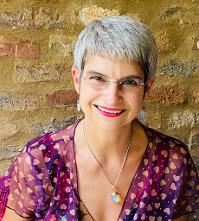
Fritz, Elzette D.Ed - South Africa
Elzette Fritz (D.Ed) South Africa is a registered Educational Psychologist in private practice and research and teaching associate in the Department of Educational Psychology, at the University of Johannesburg, South Africa. She was the coordinator for the Masters Educational psychology programme with lecturing responsibilities in therapeutic interventions and counselling skills in the Department of Educational psychology, University of Johannesburg, for nine years. Elzette was a part-time lecturer at the South African College for Applied Psychology. She is a fellow director of MEISA (Milton Erickson Institute of South Africa) that provides training to professionals in Ericksonian hypnotherapy and ego state therapy and previous president of SAPSAC (South African Professional Society for the Abuse of Children). Elzette has been trained through the Milton Erickson Institute of South Africa in Ericksonian and ego state psychotherapeutic approaches and she is passionate about creative expressive arts in psychotherapy, acknowledging somatic experiences. She has presented at international and national conferences on the utilization of Ericksonian principles in conjunction with ego states therapy, especially utilizing creative expressive arts in psychotherapy. Elzette is an accredited Ego State Therapy therapist, supervisor and trainer with Ego State Therapy International (ESTI)
Abstract
Exploring ego states that bring light to darkness: An ego states and expressive arts therapy workshop that explores post-traumatic growth
This workshop will engage participants in Expressive Arts in combination with Ego States Therapy to explore how crystals and beading open novel ways of accessing inner strength as part of post-traumatic growth. Beads in the African culture are used for a variety of reasons and can symbolize and celebrate womanhood, sexuality, femininity, manly power and status, healing, spirituality, protection, to ward off evil spirits and as good luck charms. Combining beading to the creation of a suncatcher engages the client in a powerful metaphor of the hope a rainbow provides after the storm. The activities enable gentle movement with the emphasis on bodily sensations working across the expressive arts continuum in conjunction with the SARIA model. This two-hour workshop will provide psycho-therapists familiar with Ego States, to explore new possibilities in therapy using expressive arts, especially relevant for clients who are hypo-activated. In this workshop the following outcomes will be reached: Exploring expressive arts within the context of Ego States therapy with ‘children’, irrespective of age; Understanding how to assist children and those trapped in hypo-activation through Expressive Arts in Therapy; Exploring resilient ego states; Engaging with Expressive Arts as part of experiential learning in giving voice to ego states.
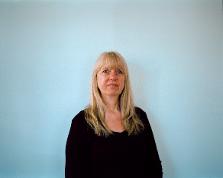
Grossbach, Silke, Dipl.-Psych – Germany
Silke Großbach is a licensed clinical psychologist and psychotherapist in private practice in Hamburg, Germany. She received her training at the University of Hamburg and specialized in the psychodynamic approach to psychotherapy for an additional period of five years. Ms. Großbach qualified as an Ego State Therapy therapist under the auspices of PhD Woltemade Hartman and is internationally certified as ego state therapist and supervisor. She assisted PhD Hartman teaching Ego State Therapy at various locations in Germany as well as in Japan, Hong Kong and South Africa. Ms. Großbach is a qualified hypnotherapist and received her training at the Milton Erickson Society of Germany. Her lecturers included amongst others Bernhard Trenkle, Professor PhD Dirk Revensdorf, Ortwin Meiss, PhD Burkhard Peter etc. She is also a certified Gestalt Therapist and a qualified Body SOMA Therapist. Ms. Großbach is the founding director of the Hamburg Institute for Trauma Therapy, which provides continued training in Hypnosis and Ego State Therapy for qualified psychologists, psychotherapists, medical doctors and specialists.
Abstract
Kreativität in der Ego-State-Therapie nutzen mit TIMES: Transparent Imaginary Mapping of Ego States
Die TIMES-Methode wurde von Dipl.-Psych. Silke Großbach für die Bearbeitung von Traumata und Konflikten entwickelt. Nur allein über das Reden erreichen wir innere Anteile oft nur schwer. Kreativität jedoch ermöglicht über das Gestalten dem Seelenzustand Ausdruck zu verleihen, sich aus der Isolation zu lösen, seine Identität zu finden und zu formen. Bilder wirken direkt und mächtig, sie vermitteln atmosphärisch verdichtete Energie. Ressourcenreiche Bilder sind Anker zur Stabilisierung und eine Zuflucht. Bilder sind Schutz, so kann ein unerträgliches Erleben aus sich „ausgelagert“ werden und schafft Distanz. Bilder sind Stellvertreter, das Bild bleibt anwesend, während ich mich gleichzeitig weiter entwickeln kann. Somit ist das Bild auch Zeugnis von psychischer Entwicklung. In der TIMES-Methode wird durch das Malen auf Transparentpapier die Trance und der Zugang zum impliziten Gedächtnis erleichtert. Ego-States werden auf dem Papier in ihrer Vielfalt sichtbar und gewürdigt. TIMES ermöglicht einen Blick in die Innenwelt, in die Psychodynamik: Wer taucht als erstes auf, wer zuletzt, wer ist dissoziiert, wer ist Ressource, wer ist Schutz, wer hat welche Funktion? TIMES ist ressourcenorientiert, Ich-stärkend, ermöglicht korrigierende Erfahrungen und fördert die intrapsychische Integration von traumatischen Inhalten, die abgespalten wurden. In diesem Workshop werden die TeilnehmerInnen mit dem sehr schnell erlernbaren Protokoll der TIMES-Methode vertraut gemacht und in einer Demonstration wird sie unmittelbar erfahrbar. Ziel des Workshops ist es die Teilnehmer dazu anzuregen diese kreative Methode in der Praxis einzusetzen und in die Arbeit mit inneren Anteilen zu integrieren. Ebenso wird der vielfältige Einsatz dieser Methode in Psychotherapie und Beratung vermittelt. Es braucht keine künstlerischen Fähigkeiten, kein Malatelier um TIMES anwenden zu können; ein Klemmbrett, Transparentpapier und Malstifte reichen aus.
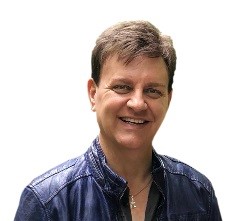
Hartman, Woltemade, Ph.D - South Africa
Woltemade Hartman (Ph.D) is a Clinical and Educational Psychologist, and psychotherapist in private practice in Pretoria, South Africa. He received his training as an Ericksonian psychotherapist at the Ericksonian Foundation in Phoenix, Arizona, USA. Dr Hartman also trained as an Ego State therapist with Prof J.G. Watkins and Mrs H. Watkins in Missoula, Montana, USA. He is the author of “Ego state therapy with sexually traumatized children” and “Einführung in die Ego-State Therapie”, as well as various articles on the topic of hypnosis and psychotherapy. Dr Hartman is the Founding Director of the Milton H. Erickson Institutes of South Africa (MEISA). He currently serves as Secretary and Treasurer of Ego State Therapy International (ESTI). Woltemade is an executive board member of the International Society of Hypnosis (ISH) and also serves as Chairperson of the Council of Representatives on this board. Dr Hartman is a Senior Research Fellow at the Department of Psychology at the University of Johannesburg and lectures in South Africa, Germany, Austria, France, Switzerland, Canada, China, Hong Kong, Singapore and Japan. He has been a Keynote Speaker at various international congresses. Dr Hartman is the recipient of the 2009 Early Career Award for Innovative Contributions to Hypnosis from the International Society of Hypnosis. He is also trained in Eye Movement Desensitization and Reprocessing (EMDR), Eye Movement Integration (EMI), EdxTM (Energy Psychology), Impact Therapy, Mindfulness Techniques, Soma and Somatic Experiencing (SE)
Abstracts
Die nichthypnotische „Stuhltechnik“ in der Ego-State-Therapie
Die nichthypnotische Technik mithilfe von Stühlen zählt zu den wichtigsten Methoden der Ego-State-Therapie. Die Bezeichnung „ nichthypnotische Technik“ bezieht sich darauf, dass keine formelle Hypnoseinduktion angewendet wird. Aus diesem Grund möchte ich die Methode in diesem Workshop ausführlich besprechen und demonstrieren. Helen Watkins (1974) entwickelte diese Technik ursprünglich aus zwei Gründen: Sie bietet sich besonders an, wenn KlientenInnen im Zusammenhang mit einem Problembereich sehr gemischte Gefühle über etwas Bestimmtes haben und bei KlientenInnen, bei denen die Arbeit mit Hypnose nicht indiziert ist. Die Technik bietet einen neuen Zugang zu den inneren Prozessen, die mit den Problemen verbunden sind. Der Anwendungsablauf dieser besonderen Technik wird ausführlich in diesem Workshop von mir dargestellt. Die Technik wird kleinschrittig und ausführlich vorgestellt, diskutiert, demonstriert und dann eingeübt. Die einzelnen Stationen und Phasen des Behandlungsprozesses werden auch gezeigt: die Kontaktaufnahme, der Aufbau von Kommunikation, die Entwicklung von Akzeptanz und Verständnis, die Unterstützung und Nutzung von Ego-States sowie deren Integration.
Master Demonstration Class: Combining Ericksonian methods, Ego State Therapy and Somatic Experiencing and Clinical Hypnosis in Psychotherapy
This Master Demonstration Class is an exceptional opportunity for therapist growth and development. Dr Hartman will share his live-long experience in psychotherapy with you in this workshop. Dr Hartman invites participants to join him in the workshop where he will do an advanced demonstration by combining Ego State Therapy, body psychotherapy, Soma stabilization techniques, Ericksonian methods and clinical hypnosis. The purpose of the workshop is to broaden your scope of psychological interventions skills and to enhance your therapeutic and professional growth by learning more about these very useful approaches. The main purpose of the workshop is to discover that a combination of these therapeutic strategies is a powerful match! Additionally you will learn that the combination of the methods could also be used as a brief therapeutic intervention strategy. The workshop will include a live demonstration deriving useful ideas with the various techniques. Hence, the training is a stimulating blend of theoretical and observational learning. A discussion and analysis of the applied therapeutic techniques will follow the demonstrations.
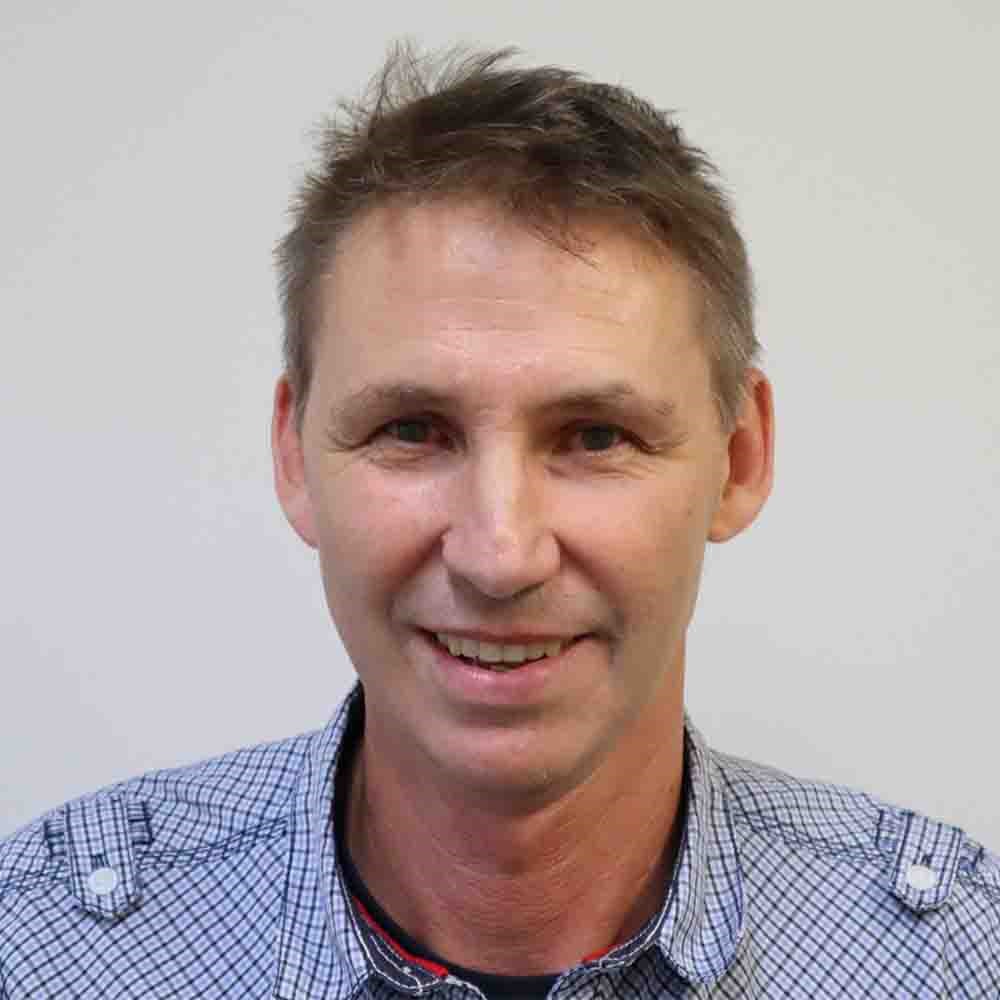
Hatting, Carl, M.A. Clin .Psych – Australia
Carl Hattingh (Callie) is the President of the Australian Institute of Clinical Hypnosis and Psychotherapy (AICHP). He is the Director of the Ericksonian Institute of Sydney Australia (EISA). Callie is an AHPRA registered Clinical Psychologist in private practice in Sydney. He is an experienced and recognized international presenter and trainer in Ericksonian hypnosis. He received the Fuma award in 2016 for his contribution to Promoting Clinical Hypnosis and Psychotherapy in South Africa. Callie is a past director of the Milton H. Erickson Institutes of South Africa (MEISA), past President Elect of the Milton H. Erickson Society of South Africa and Director of the Milton H. Erickson Institute of Cape Town South Africa (MECSA).He has been a trainer in Ericksonian Hypnosis and Psychotherapy since 2000 as a founding member of MEISA and has organized various congresses and trainings on clinical hypnosis, trauma and psychotherapy. Callie has initially been trained in Cognitive Behavioural Therapy at the University of Stellenbosch in South Africa, but has a special interest in clinical hypnosis since 1994. He has a special interest in the Ericksonian approach, but is also a registered supervisor and trainer with Ego State Therapy International (ESTI) and a registered Somatic Experiencing Practitioner (SEP). He has been a keynote speaker and faculty member at various international congresses.
Abstract
Living the Freedom: A Journey with Dissociative Identity Disorder (DID)
Managing structural dissociation of the personality due to the effects of severe, chronic and multiple childhood traumas remains challenging. A phase oriented treatment approach has been proposed by van der Hart, Nijenhuis and Steele (2006). This workshop will utilize case discussions and DVD demonstrations to demonstrate the efficacy of the Ego State Therapy approach of Prof. John and Helen Watkins, in the treatment of severe cases of personality disintegration due to Complex PTSD, and specifically Dissociative Identity Disorder (DID). The workshop will explore the presenting symptoms, diagnosis, development and treatment of DID. The workshop will demonstrate how alters develop through trauma and introjects. The utilization of the SARI-model and stages of integration (Frederick, C. & Phillips, M, 1995) will be demonstrated through case presentations of Dissociative Identity Disorder (DID) on DVD. Different techniques of education and establishing safety and stabilitzation will be illustrated. Recognizing, talking through and accessing alters will be demonstrated. The complexity of treating DID requires of the therapist to develop novel therapeutic approaches to join the client’s world. The utilization of art and music, play therapy, EMDR/EMI and Somatic Experiencing to access and process underlying trauma and resolve the conflicts between dissociated alters/ states will be explored. The workshop will also refer to some of the more difficult treatment dilemmas in severe dissociation: hallucinations, self-destructiveness, malevolent alters and managing complex conditions such as epilepsy. Lastly, incorporating the patient in the stages of integration and developing a new identity will be demonstrated.

Helle, Ursula, Dr. Med – Germany
Ursula Helle, M.D., holds a private practice in Munich, Germany, doing individual psychotherapy for adults, coaching and supervision with health professionals. As a Medical Doctor she worked in different hospitals with focus on psychiatry and psychotherapy. Besides her clinical work she received her basic training as a psychodynamic psychotherapist. Dr. Helle is a specialist in Trauma Therapy (DeGPT). She is also trained in Hypnotherapy, EMDR, process and embodiment focused psychology (PEP), Systemic Therapy, Ego State Therapy and is currently pursuing SOMA training with Sonia Gomes and Marcelo Muniz. Ursula is a supervisor for Ego State Therapy in Munich and assists Dr. Woltemade Hartman during training in Germany, South Africa and China. She is the Past-President of Ego State Therapy International (ESTI). Since 2003 she has had exposure to health systems in developing countries (Madagascar, Nepal, Tanzania and China). With special interest in transcultural psychotherapy she worked with expatriates and refugees in Germany.
Abstract
Schuld – die ungeliebte Schwester der Selbsterkenntnis:Eine kleine Hommage an die Schuld
Schuldgefühle sichern uns den Einblick in die gesellschaftlichen Regeln und erlernte Grenzen, Selbsterkenntnis den Einblick in unsere individuellen Bedürfnisse. Beide präzisieren die Pole, zwischen denen wir uns bewegen und zwischen denen wir unsere Entscheidungen zu mehr Zugehörigkeit oder Autonomie treffen. Lebensgeschichtlich wachsen wir aus der überlebensnotwendigen Zugehörigkeit in die Autonomie. Unsere Bedürfnisse an die soziale Gemeinschaft ändern sich damit fundamental. Wir müssen die Beziehung der beiden „Gefühlsschwestern“ ständig nachjustieren. Schuldgefühle helfen uns essentiell, die Hilflosigkeit in den abhängigen Lebensphasen in ein „Ich-Potential“ zu transformieren. Das Schuldgefühl geht nicht ohne Ich-Bezug. „Ich bin Schuld“ heißt auch „Ich bin“ und ich kann vielleicht mit der Schuld irgendwie umgehen. Mit der Entdeckung dieses „Ich-Potentials“ kann sich eine Zeitperspektive entwickeln, wir können „Zukunfts-Ego-States“ formen, in die wir unser Potential projizieren und mit deren Hilfe wir später Rettung erfahren.
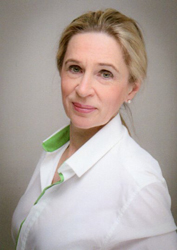
Kruczek-Schumacher, Margarethe Dipl.- Psych
Studium der Psychologie an der Schlesischen Universität in Kattowitz (Polen), anschließend dort als Dozentin am Lehrstuhl für klinische Psychologie tätig. Ausgebildet in folgenden Therapieverfahren: Verhaltenstherapie, Hypnotherapie nach M. Erickson, psychologische Schmerztherapie (Supervisorin), Sexualtherapie, Ego State Therapie (international anerkannte Supervisorin), Somatic Experiencing nach Peter Levine, SOMA (Sonia Gomez und Marcelo Muniz), Bodynamic (Lisbeth Marcher), energetische Psychotherapie (Level 2 Trainier), EMI (Eye Movement Integration), systemische Beratung, wingwave Lehrtrainerin und Coach. Frau Kruczek-Schumacher präsentierte ihre Workshops auf diversen Tagungen und Kongressen. Seit Jahren assistiert sie bei Dr. Woltemade Hartman (Südafrika) bei Seminaren in Japan, Südafrika und dem deutschsprachigen Raum.Inhaberin und Gründerin von 2 Instituten: KITA-Institut (Kölner Institut für traumatherapeutische Anwendungen) sowie wingwave-Institut-Cologne. Autorin von 2 Büchern („Handbuch der EFT“ sowie „Treffen der Energie“, beide erschienen auf Polnisch)
Abstract
„Wingwave meets Ego States“: Augen Therapie für Trauma
In dem Workshop werden die Teilnehmer mit der wingwave-Methode bekannt gemacht. Diese verknüpft die schnellen Augenbewegungen des EMDR mit dem sogenannten Omura-Muskeltest. Dieser dient dabei als Kompass, mit dessen Hilfe der Therapeut in der Lage ist, sehr präzise u.a. die Entstehungsgeschichte der Problematik des Patienten zu erfassen und diese „punktgenau“ durch die Augenbewegungen zu neutralisieren. Es erlaubt zu erfahren, ob es sich bei einem bestimmten Problem eher um kindliche oder um erwachsene Anteile handelt und ob es um die eigenen oder „übernommenen“ (transgenerativen) Anteile geht. Mit Hilfe eines präzisen „Aussagebaumes“ ist es ebenfalls möglich zu differenzieren, ob ein Problem überwiegend emotionalen oder körperlichen Stress beim Patienten verursacht. Der Myostatiktest hilft die hinderlichen unbewussten Grundüberzeugungen des Patienten zu entdecken sowie die gewünschten, noch nicht gelebten Überzeugungen zu verinnerlichen und mit Hilfe der Ressourcenaktivierung im Körper zu verankern. Die Methode ist mit allen Therapieverfahren kombinierbar.

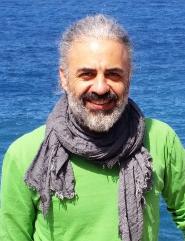
Kruczek-Schumacher, Margarethe Dipl.- Psych and Amirsadri, Afshin, Dipl.Ing/Yoga Teacher - Germany
Margarethe Kruczek-Schumacher is a Clinical Psychologist and psychotherapist in private practice in Cologne, Germany. After her studies, she taught for 2 years at the Silesian University in Katowice (Poland). She received her training as a behavioural psychotherapist, hypnotherapist (M. Erickson), pain therapist and sex therapist. Furthermore she is a level 2 trainer in Energetic Psychotherapy (Fred Gallo), Ego State Therapist and Body Therapist. She received training in different body therapy approaches, for example: Somatic Experiencing , SOMA and Bodynamics. She is also trained in EMI, EMDR and coaching. Moreover she is a wingwave-coach and teacher, gives supervision in Ego State Therapy, pain therapy and behaviour therapy. At her institute in Cologne (https://wingwave-institut-cologne.de/) she provides wingwave tranings to psychologists. In addition to that she is also a founder of KITA (Kölner Institut für traumatherapeutische Anwendungen.)
Afshin Amirsadri graduated in Information Technology in Cologne. He worked as a graduate engineer in this field for many years up to managerial level. His spiritual search led him in1991 to Sufism, where he devoted himself amongst other very intensively to meditation.During 2003 he started his journey with yoga and became a multi-certified Iyengar yoga teacher. He continued with his yoga education at home and abroad, including in-house advanced training in India in Iyengar-, Ashtanga- and Shivananda yoga. He is the founder and director of the Cologne Yoga centre (YOGAJI) and offers training in amongst other yoga, posture, breathing techniques and meditation.Afshin has been teaching the application of yoga (postures, breathing techniques and meditation) in trauma therapy in close collaboration with Dr. Woltemade Hartman Ph.D (South Africa) in various countries since 2020. He completed the Ego State Therapy curriculum, as well as all modules of bodywork with Dr. Hartman as well as Dipl.-Psych. Margarethe Kruczek-Schumacher (KITA-Institute Cologne.
Abstract
Yoga and energy psychotherapy based interventions in (trauma) psychotherapy
Numerous scientific papers and evidence-based studies prove the effectiveness of yoga but also of energy psychotherapy in the treatment of various medical diseases. Many renowned researchers and practitioners including Bessel van der Kolk, Steven Porges, Daniel Siegel, Ped Odgen, Peter Levine and many others refer to the holistic approach of yoga in their theoretical concepts and consequently in their practical work. Energy psychology with its variety of very effective and simple (tapping) techniques is also ideally suited to be used in any phase of psychotherapy and treatment or counselling. The ancient yogis knew very well that the human being is always able to positively influence the autonomic nervous system with consciously applied breathing techniques (pranayama) as well as through certain postures (asanas), but also through meditation. By consciously regulating breathing, we are able to influence both emotions and state of mind by either releasing energies or "putting on the brakes". This gives clients* a sense of self-efficiency, self-control and self-efficacy. The BMSA (bifocal multisensory activation) techniques of energy psychotherapy also follow this principle. Both the yoga and the "tapping techniques" are well applicable with all therapy approaches and in every phase of psychotherapy and can be combined with other methods. In this hands-on workshop, a variety of interventions, from both yoga and energy psychotherapy, will be presented alongside a brief theoretical introduction to Dr. Steven Porges' polyvagal theory.
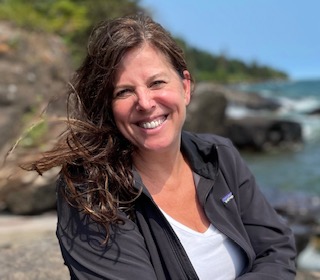
Lemke, Wendy, MS – United States of America
Wendy is a licensed psychologist with a clinical and consulting practice in St. Cloud, MN, USA and an adjunct instructor for St. Cloud Technical Community College. She has expertise and teaches around the globe in the fields of clinical hypnosis, ego state therapy, and trauma. She is an American Society of Clinical Hypnosis (ASCH) certified approved consultant, an active member and former Vice President of the American Society of Clinical Hypnosis (ASCH). She is also an active member of the Minnesota Society of Clinical Hypnosis (MSCH). She has been honored with four awards from the American Society of Clinical Hypnosis: two journal awards for publishing, a Merit award, and most recently a Presidential award for her continued efforts to expand clinical hypnosis education to the International Society for the Study of Trauma and Dissociation (ISSTD). She was also awarded the Daniel P. Kohen M.D. Outstanding Clinician Award in recognition of outstanding leadership in the clinical practice, teaching, and utilization of therapeutic hypnosis by the Minnesota Society of Clinical Hypnosis. She is a fellow and an active member of ISSTD and a certified therapist, supervisor and trainer through Ego-State Therapy International.
Abstract
Ego State Therapy Strategies for Developmental Repair Based on Attachment Theory and Developmental Psychology
Developmental repair is often a fundamental component of Ego State Therapy, especially when working with complex/developmental trauma and dissociative disorders, and those with borderline personality presentations. These presentations often make therapeutic work challenging with reactive emotional displays and frequent transference/countertransference issues. These challenges often occur when there has been a perceived attachment disruption like those experienced when a therapist is required to take time off for conferences, illnesses, or vacations. This workshop will provide Ego State Therapy considerations and applications to address these attachment wounds from a perspective that incorporates attachment theory and developmental psychology. Discussion will include the importance of effective boundaries, and ways for helping younger ego states achieve developmental milestones such as object constancy, and fostering ‘safe’ connections for when attachment is perceived as a threat. Strategies will include accessing ego states for resources, the use of transitional objects for self-soothing and ways to hypnotically reinforce, and the use of therapeutic metaphors/stories to promote healthy attachment.
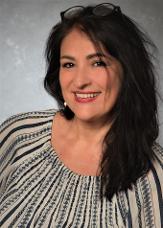
Müller, Adriana-Daniela, Dipl-Psych - Germany
Frau Adriana-Daniela Müller hat Psychologie an der Ruhr-Universität Bochum studiert und arbeitet in der eigenen privaten Praxis für Psychotherapie in Soest. Sie ist approbierte Verhaltenstherapeutin, Hypnotherapeutin (MEG) und Supervisorin für Ego-State-Therapie (Ausbildung bei Dr. Woltemade Hartman und Dr. Kai Fritzsche). Frau Müller begleitet sei Jahren EST-Workshops in Südafrika und EST-Ausbildungsseminare in Hong Kong und Japan (Dr. Hartmann). Sie ist ausgebildet in Psychotraumatherapie (DeGPT); EMDR (EMDR-Institut Deutschland, Dr. Arne Hoffmann); Brainspotting (Institut für Traumatherapie Berlin-Oliver Schubbe); Paartherapie (EATP- Dirk Revensdorf u. Halko Weiss); Energy Psychology (EFT / EDxTM- Astrid Vlamynck); Neurofeedback (Othmarverfahren/ EEG Info Europe); Somatic Experiencing und SOMA (Sonia Gomez und Marcelo Muniz, Brasilien).
Abstract
„Zurück in die Zukunft“ - Ego-State Therapie auf der Timeline
In dem Science-Fiction-Film von 1985, bleibt der Jugendliche Marty in der Vergangenheit stecken und kann nur mit der Hilfe des exzentrischen Dr. Braun zurückfinden. Wir sind keine exzentrischen Wissenschaftler und haben zum Glück auch keine Zeitmaschine erfunden. Durch die Ego-State-Therapie haben wir jedoch die Möglichkeit, den in der Vergangenheit „gestrandeten“ Ich-Anteilen zu helfen, zurück in den Lebensfluss zu finden. Wir haben auch die Hypnose, als elegante Möglichkeit den Ego-States dissoziativ wie assoziativ zu begegnen und in Trance-Logik, durch korrigierende Erfahrungen, die Vergangenheit so „zu verändern“, dass die Blockaden im Nervensystem, im Körper und in der Seele aufgelöst werden. Wir lösen damit kein „Zeitparadoxon“ aus, sondern helfen inneren Anteilen sich neu zu orientieren, sich weiterzuentwickeln, neue Balance, Selbstregulation und Kohärenz zu finden, in „Flow“ zu kommen und sich in der Ganzheit zu integrieren. Nach Peter A. Levine (SE) und Stephen Porgers (Polyvagaltheorie) liegt das Trauma nicht in den auslösenden Ereignissen, sondern im Nervensystem. Traumatische Erlebnisse können in tiefen subkortikalen Strukturen, sowie in unserem Körper in den Muskeln, Faszien und Gelenken „stecken bleiben“. Ego-States entstehen als „Überlebensstrategie“ in Verbindung mit dem Trauma und können über die Zeit, in der Struktur des Körpers, in einer „unveränderten Form“ aktiv bleiben und dabei psychologisches Wachstum, sowie die Fähigkeit des Körpers für Embodiment, Wahrnehmung und Orientierung, reduzieren oder blockieren. In diesen Workshop wird in einer Livedemonstration gezeigt, wie wir in Trancelogik, mit den Ego-States auf der Zeitlinie arbeiten können, wie durch die Anregung von Bewegung und durch die Verwendung von therapeutischer Berührung, in ethisch vertretbarer Weise, zusätzlich die Stabilität als Ganzes, die zeitliche und räumliche Orientierung, sowie die Integration der Ego-States unterstützen. Nach der Livedemonstration können unterschiedliche Aspekte der Theorie aus dem EST-Curriculum, die hier in Kombination mit der Timeline Arbeit praktisch angewendet wurden, diskutiert werden.
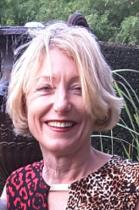
Müller-Quade, Claudia Dipl. Psych. / Dipl. Soz. Päd. - Germany
Dipl.-Psych. Claudia Müller-Quade is a Systemic Therapist, Ego State Therapist, Hypno- and Family-therapist in private practice in Wiesbaden. For many years, she was the co-director of an institute for systemic individual and family therapy in Wiesbaden, Germany. In 2016, she founded together with her husband Dr. Christoph Quade and Dr. Woltemade Hartman the "Wiesbaden Trauma Institute International, Woltemade Hartman Institute for Ego State Therapy”, She is amongst other trained in Systemic Therapy, Family therapy, Ego State Therapy, SOMA and Clinical Hypnosis. She is an accredited Ego-State Supervisor and Trainer with Ego State Therapy International. She had various TV appearances as an expert of psychological issues around the topic of "individual and family". Her training in various therapeutic modalities and registration as a psychologist, social pedagogue and physiotherapist allow her to utilize a comprehensive therapeutic approach with her clients.
Abstracts
Der Körper unser Botschafter und Informant in der Ego-State-Therapie: Ego-State Therapie unter Einbeziehung der Auswirkungen von Trauma auf die verschiedenen Körpersysteme
Lange wurde in der Psychotherapie der Fokus auf die Psyche gelegt und der Körper vergessen. In diesem Workshop werden zunächst grundlegende Erkenntnisse über die verschiedenen Körpersysteme vermittelt, die für die psychotherapeutische Arbeit bedeutsam sind. Dabei werden die Auswirkungen von Traumata auf die verschiedenen Systeme aufgezeigt. Die Reaktionen des Körpers darauf führen häufig zu schwerwiegenden Veränderungen und Langzeitfolgen. Schließlich werden körpertherapeutische Behandlungsmöglichkeiten für die entsprechenden Systeme in Kombination mit der Ego State Therapie aufgezeigt und anhand von praktischen Übungen und Selbsterfahrung erarbeitet.
Everyone has their Reflecting Team with them. Ego-State Therapy and the work with the inner or outer Reflecting Team
Ego -States often feel threatened by therapists in their existence. In this approach, Ego-State Therapy is combined with the Systemic approach of Tom Anderson's Reflecting Team. The therapist's Ego-States, as so-called "Inner Reflecting Team", play just an as important role as the Ego-States of the clients. The inner dialogue between the therapist's Ego-States should be made accessible to the client and used therapeutically. The core idea of the Reflecting Team is the openness between clients and therapists. Another core idea is the separation between the experiencing role i.e. discussing and reacting to what has been said and the listening, reflective role which is the least threatening one. The client‘s Ego-States are therefore allowed to be in a listening, reflecting role in the sense of Anderson so that they can feel safe. This gives the greatest possible chance for the construction of new cognitions and ideas of action to the clients and thus for change.
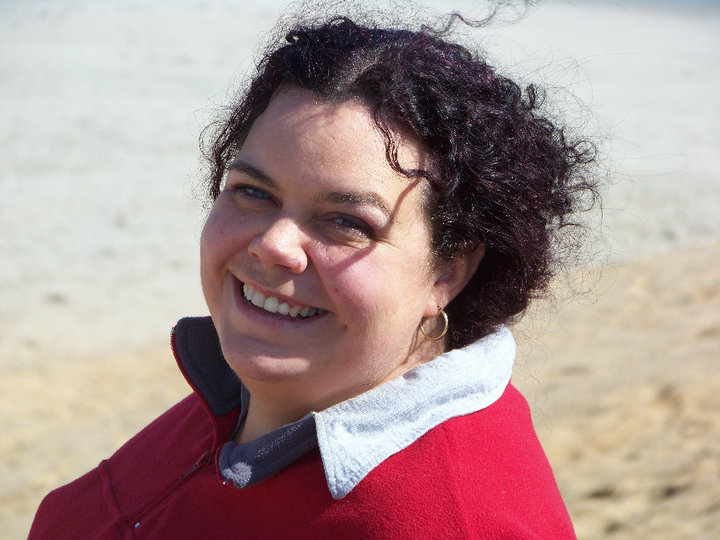
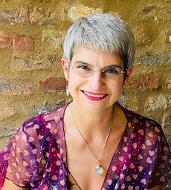
Nel, Joy, M.Ed and Fritz, Elzette, D.Ed – South Africa
Joy Nel is an Educational Psychologist in private practice, Fairland Johannesburg, South Africa. She is currently studying her Ph.D in Strategic Therapies and Self-Injury. She is involved in training fellow psychologists in Narrative Therapy and focusing on the utilization of stories and metaphors and art in guiding children and adolescents to cope with issues such as Divorce, Bullying, Trauma, Abuse, Low self-esteem and Self-Injury to mention a few. Joy received her training in Ericksonian Psychotherapy and Hypnosis from the Milton. H Erickson Institute of South Africa (MEISA). Joy has presented workshops at international congresses for Psychologists in Germany, Switzerland and South Africa. Joy has written a few articles and internationally published chapters on the utilization of an Ericksonian-Narrative approach in therapy. She is currently in the process of writing and publishing therapeutic children’s stories as well as a manual to assist adolescents with Self-Injury.
Elzette Fritz (D.Ed) South Africa is a registered Educational Psychologist in private practice and research and teaching associate in the Department of Educational Psychology, at the University of Johannesburg, South Africa. She was the coordinator for the Masters Educational psychology programme with lecturing responsibilities in therapeutic interventions and counselling skills in the Department of Educational psychology, University of Johannesburg, for nine years. Elzette was a part-time lecturer at the South African College for Applied Psychology. She is a fellow director of MEISA (Milton Erickson Institute of South Africa) that provides training to professionals in Ericksonian hypnotherapy and ego state therapy and previous president of SAPSAC (South African Professional Society for the Abuse of Children). Elzette has been trained through the Milton Erickson Institute of South Africa in Ericksonian and ego state psychotherapeutic approaches and she is passionate about creative expressive arts in psychotherapy, acknowledging somatic experiences. She has presented at international and national conferences on the utilization of Ericksonian principles in conjunction with ego states therapy, especially utilizing creative expressive arts in psychotherapy. Elzette is an ESTI accredited Ego State Therapy therapist, supervisor and trainer.
Abstract
Into the Labyrinth with Ego State Therapy: An expressive art therapy workshop
Research in psychology and child development suggests that circles are part of the fundamental structuring of personal identity. The Labyrinth – is a symbol that relates to wholeness. It is an ancient archetype used symbolically, as a walking meditation and ceremony, among other things. Labyrinths are tools for personal, psychological and spiritual transformation. Labyrinths evoke metaphors and mindfulness through environmental art whilst enhancing community building. This workshop explores the use of Labyrinths, mindfulness and expressive art in therapy to firstly assist the client in moving the focus from what’s wrong towards what’s right. Secondly the utilization of Labyrinths in Ego State therapy creates effortless flow for the client to identify resources and skills as various creative techniques to illicit, communicate with and reintegrate the client’s ego states are utilised. Participants will be introduced to various ways of engaging with Labyrinths across age ranges and how this can be superimposed on the SARIA model used in Ego State Therapy. In this highly interactive, fun and engaging multimedia workshop, participants are invited to enter the world of Labyrinths into a deeper understanding of the parts of the personality.
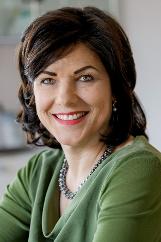
Zanotta, Silvia, D.Phil - Switzerland
Dr. phil. Silvia Zanotta works as a psychologist and psychotherapist for children, adolescents, adults and families in private practice in Zurich, Switzerland. She is a certified trainer and case consultant in Ego State Therapy, as well as founder and co-chair of EST-CH, Ego State Therapy Switzerland. Silvia Zanotta has certified in Person-Centered-Therapy (Carl Rogers), Trauma-Therapy (PITT), Clinical Hypnosis (MEG and Ghyps) and Ego-State-Therapy (FEST and ESTI), including Energy Psychology and Somatic Experiencing in her work. She specializes in the treatment of traumatic stress, anxiety, phobia, OCD and autism. Dr. Zanotta has taught at national and international major conferences in Europe and South Africa and has written various articles/publications on trauma and Ego State Therapy.
Abstracts
Scham, die versteckte Emotion - von Ohnmacht zu Stärke und Triumph mit Ego-State-Therapie und Körperwissen
Scham ist eine überaus schmerzhafte und machtvolle Emotion. Scham ist bei jedem Menschen und in allen Kulturen vorhanden und beeinflusst das Leben, insbesondere die seelische Gestimmtheit entscheidend. Obwohl Scham so zentral ist, ist sie wenig bewusst, wird verborgen oder geheim gehalten. Denn einerseits gibt es nur wenige Forschungen zu Scham, andererseits wird Scham häufig verwechselt mit Angst, Wut oder Ekel, hinter denen sie sich versteckt. Alle Pathologien, die mit Selbstverurteilung oder Selbstabwertung zusammen hängen, haben mit Scham zu tun. Scham ist auch eng verbunden mit Trauma. Deshalb ist es bei der Traumabehandlung essentiell wichtig, die Scham als solche zu erkennen, sie zu beachten, zu entwirren, zu lösen. Dabei muss der Therapeut berücksichtigen, wie verwundbar Menschen mit Scham sind, wie leicht sie (wieder) beschämt werden und wie vorsichtig dieses Thema in der Therapie angegangen werden muss. Tiefe Scham ist gleichbedeutend mit Kollaps und komplettem Energieverlust, begleitet von Gefühlen der Ohnmacht und Hoffnungslosigkeit.Neben der Beschäftigung mit Scham aus verschiedenen Perspektiven und einigen theoretischen Erläuterungen wird Silvia Zanotta in diesem praxisnahen Workshop aufzeigen, wie Klienten unter Einbezug des Körpers von der Ohnmacht und Immobilität der Scham sukzessive in eine Alpha-Physiognomie der gesunden Selbstbehauptung gebracht werden können, hin zu Würde, Freude, Triumph. Dabei verbindet sie Ego-State-Therapie mit somatischen Zugängen.
Treating preverbal phenomena and attachment trauma with Ego State Therapy and Body Wisdom
Ego-states are not just a theoretical construct, but real neural connections in the brain that develop throughout life, mostly in childhood and adolescence. At the age of 2, an attachment pattern is formed in the human brain based on relationship experiences. This pattern has a decisive influence on the further psychological and physical development of every individual. Pre-, peri- and postnatal trauma as well as attachment ruptures influence this imprinting in a negative way.With the Ego-State Model we have the possibility to directly influence these attachment patterns and to rewire the corresponding neural pathways in the brain. Combined with somatic approaches, we can access ego-states formed before language acquisition. By improving the regulation of the nervous system, symptoms are reduced and the whole personality is strengthened.This workshop will focus on pre-, perinatal and early childhood shock or attachment trauma. Participants will learn how to recognize and integrate these early traumatic experiences and their associated Ego States and how to strengthen mind and body. In addition to theoretical inputs, various methods of Ego State Therapy, mindfulness meditation, Somatic Experiencing® and other somatic approaches will be combined, helping clients to better self-regulation and more safety.
Zanotta, S. (2018): "Whole again - healing trauma with ego-state therapy and body wisdom" (Auer).